Artist:
Muggsy Spanier
Title:
The Chronological Classics: 1949-1954
Year Of Release:
2005
Label:
Classics [1405]
Genre:
Jazz, Dixieland
Quality:
FLAC (tracks + .cue,log,scans)
Total Time: 68:55
Total Size: 272 MB(+3%)
WebSite:
Album Preview
Tracklist01. A Good Man Is Hard to Find (2:56)
02. Washington and Lee Swing (2:57)
03. Dixie Flyer (2:52)
04. Lazy Piano Man (2:43)
05. Sweet Georgia Brown (3:00)
06. Feather Brain (2:54)
07. Home (3:03)
08. It's a Long, Long Way to Tipperary (2:49)
09. Caution Blues (3:03)
10. Alabama Jubilee (2:55)
11. Moonglow (2:46)
12. Sunday (3:14)
13. Blue Room (3:06)
14. Tiger Rag (2:42)
15. South (2:30)
16. When My Dream Boat Comes Home (2:12)
17. Careless Love (10:38)
18. Judy (3:29)
19. Oh, Doctor Ochsner! (2:31)
20. Washington and Lee Swing (3:18)
21. My Wild Irish Rose (3:17)
About two-and-a-half years transpired between Muggsy Spanier's September 1946 session for the Disc label (see Classics 967, Muggsy Spanier 1944-1946) and the Jazz Limited recording date of February 1949, which resulted in the two tracks that open this fourth volume in the Classics Muggsy Spanier chronology. Based in Chicago, the small-time Jazz Limited record label was an offshoot of Jazz Ltd., a Windy City Dixieland club at 11 East Grand Avenue run by cute little Ruth Reinhardt and her husband, Bill, who can be heard blowing his clarinet on these first two selections. Muggsy Spanier & the Dixieland Band recorded on four separate occasions for the Mercury label in Chicago between March 1950 and May 1952; the first of these groups (tracks three through six) had perhaps the most intriguing lineup in George Brunies, Darnell Howard, Floyd Bean, Truck Parham, and Big Sid Catlett, who was destined to die of a backstage heart attack almost exactly one year later. Aside from the session of August 29, 1951, during which an oddly tense Buddy Charles sings "Moonglow" and "Sunday" with a bit too much vibrato, these sorts of good-time old-fashioned blowing sessions were typical of Spanier's recorded output throughout the years. At the beginning of September 1954 Spanier, who had switched to the trumpet in 1950, was recording for Decca using the old cornet and billing his group as a "Jazz" rather than "Dixieland" band. These recordings, particularly the slower-paced numbers like Hoagy Carmichael's "Judy" and a ten-and-a-half-minute take of "Careless Love," are elegant and majestic in ways that bear comparison with Spanier's best recordings.
Exact Audio Copy V1.3 from 2. September 2016
EAC extraction logfile from 1. June 2024, 18:40
Muggsy Spanier / The Chronological Classics: Muggsy Spanier 1949-1954
Used drive : ASUS SDRW-08D2S-U Adapter: 1 ID: 0
Read mode : Secure
Utilize accurate stream : Yes
Defeat audio cache : Yes
Make use of C2 pointers : No
Read offset correction : 6
Overread into Lead-In and Lead-Out : No
Fill up missing offset samples with silence : Yes
Delete leading and trailing silent blocks : No
Null samples used in CRC calculations : Yes
Used interface : Native Win32 interface for Win NT & 2000
Gap handling : Appended to previous track
Used output format : User Defined Encoder
Selected bitrate : 1024 kBit/s
Quality : High
Add ID3 tag : No
Command line compressor : C:\Program Files (x86)\Exact Audio Copy\Flac\flac.exe
Additional command line options : -8 -V -T "ARTIST=%artist%" -T "TITLE=%title%" -T "ALBUM=%albumtitle%" -T "DATE=%year%" -T "TRACKNUMBER=%tracknr%" -T "GENRE=%genre%" -T "PERFORMER=%albuminterpret%" -T "COMPOSER=%composer%" %haslyrics%--tag-from-file=LYRICS="%lyricsfile%"%haslyrics% -T "ALBUMARTIST=%albumartist%" -T "DISCNUMBER=%cdnumber%" -T "TOTALDISCS=%totalcds%" -T "TOTALTRACKS=%numtracks%" -T "COMMENT=%comment%" %source% -o %dest%
TOC of the extracted CD
Track | Start | Length | Start sector | End sector
---------------------------------------------------------
1 | 0:00.00 | 2:55.56 | 0 | 13180
2 | 2:55.56 | 2:57.17 | 13181 | 26472
3 | 5:52.73 | 2:52.20 | 26473 | 39392
4 | 8:45.18 | 2:43.10 | 39393 | 51627
5 | 11:28.28 | 3:00.16 | 51628 | 65143
6 | 14:28.44 | 2:53.69 | 65144 | 78187
7 | 17:22.38 | 3:03.16 | 78188 | 91928
8 | 20:25.54 | 2:48.55 | 91929 | 104583
9 | 23:14.34 | 3:02.66 | 104584 | 118299
10 | 26:17.25 | 2:55.22 | 118300 | 131446
11 | 29:12.47 | 2:45.44 | 131447 | 143865
12 | 31:58.16 | 3:13.60 | 143866 | 158400
13 | 35:12.01 | 3:06.10 | 158401 | 172360
14 | 38:18.11 | 2:41.47 | 172361 | 184482
15 | 40:59.58 | 2:29.58 | 184483 | 195715
16 | 43:29.41 | 2:12.26 | 195716 | 205641
17 | 45:41.67 | 10:38.10 | 205642 | 253501
18 | 56:20.02 | 3:29.21 | 253502 | 269197
19 | 59:49.23 | 2:31.14 | 269198 | 280536
20 | 62:20.37 | 3:18.28 | 280537 | 295414
21 | 65:38.65 | 3:16.68 | 295415 | 310182
Track 1
Filename C:\Data\Music\Muggsy Spanier - 1949-1954 (2005, Chronological Classics)\01 - A Good Man Is Hard to Find.wav
Pre-gap length 0:00:02.00
Peak level 100.0 %
Extraction speed 1.1 X
Track quality 100.0 %
Test CRC 3A1D68FC
Copy CRC 3A1D68FC
Accurately ripped (confidence 1) [9E7AB608] (AR v2)
Copy OK
Track 2
Filename C:\Data\Music\Muggsy Spanier - 1949-1954 (2005, Chronological Classics)\02 - Washington and Lee Swing.wav
Pre-gap length 0:00:02.60
Peak level 100.0 %
Extraction speed 1.2 X
Track quality 100.0 %
Test CRC B9D2D18C
Copy CRC B9D2D18C
Accurately ripped (confidence 1) [4C13F9F0] (AR v2)
Copy OK
Track 3
Filename C:\Data\Music\Muggsy Spanier - 1949-1954 (2005, Chronological Classics)\03 - Dixie Flyer.wav
Pre-gap length 0:00:02.60
Peak level 99.9 %
Extraction speed 1.2 X
Track quality 100.0 %
Test CRC 77233354
Copy CRC 77233354
Accurately ripped (confidence 1) [492D702F] (AR v2)
Copy OK
Track 4
Filename C:\Data\Music\Muggsy Spanier - 1949-1954 (2005, Chronological Classics)\04 - Lazy Piano Man.wav
Pre-gap length 0:00:02.60
Peak level 100.0 %
Extraction speed 1.3 X
Track quality 100.0 %
Test CRC 55CFFA8C
Copy CRC 55CFFA8C
Accurately ripped (confidence 1) [7417BB0D] (AR v2)
Copy OK
Track 5
Filename C:\Data\Music\Muggsy Spanier - 1949-1954 (2005, Chronological Classics)\05 - Sweet Georgia Brown.wav
Pre-gap length 0:00:02.60
Peak level 99.9 %
Extraction speed 1.4 X
Track quality 100.0 %
Test CRC DA466163
Copy CRC DA466163
Accurately ripped (confidence 1) [1EE53E68] (AR v2)
Copy OK
Track 6
Filename C:\Data\Music\Muggsy Spanier - 1949-1954 (2005, Chronological Classics)\06 - Feather Brain.wav
Pre-gap length 0:00:02.60
Peak level 100.0 %
Extraction speed 1.2 X
Track quality 99.9 %
Test CRC 8BCBC326
Copy CRC 8BCBC326
Accurately ripped (confidence 1) [B37288DB] (AR v2)
Copy OK
Track 7
Filename C:\Data\Music\Muggsy Spanier - 1949-1954 (2005, Chronological Classics)\07 - Home.wav
Pre-gap length 0:00:02.60
Peak level 100.0 %
Extraction speed 1.5 X
Track quality 100.0 %
Test CRC 41F2AC01
Copy CRC 41F2AC01
Accurately ripped (confidence 1) [52EEA23D] (AR v2)
Copy OK
Track 8
Filename C:\Data\Music\Muggsy Spanier - 1949-1954 (2005, Chronological Classics)\08 - It's a Long, Long Way to Tipperary.wav
Pre-gap length 0:00:02.60
Peak level 100.0 %
Extraction speed 1.6 X
Track quality 100.0 %
Test CRC F5B2FE17
Copy CRC F5B2FE17
Accurately ripped (confidence 1) [E3F8FC82] (AR v2)
Copy OK
Track 9
Filename C:\Data\Music\Muggsy Spanier - 1949-1954 (2005, Chronological Classics)\09 - Caution Blues.wav
Pre-gap length 0:00:02.60
Peak level 99.9 %
Extraction speed 1.6 X
Track quality 100.0 %
Test CRC A36D52AD
Copy CRC A36D52AD
Accurately ripped (confidence 1) [1A2AB316] (AR v2)
Copy OK
Track 10
Filename C:\Data\Music\Muggsy Spanier - 1949-1954 (2005, Chronological Classics)\10 - Alabama Jubilee.wav
Pre-gap length 0:00:02.60
Peak level 100.0 %
Extraction speed 1.4 X
Track quality 99.9 %
Test CRC E9B211C0
Copy CRC E9B211C0
Accurately ripped (confidence 1) [E19E3A1A] (AR v2)
Copy OK
Track 11
Filename C:\Data\Music\Muggsy Spanier - 1949-1954 (2005, Chronological Classics)\11 - Moonglow.wav
Pre-gap length 0:00:02.60
Peak level 88.9 %
Extraction speed 1.7 X
Track quality 100.0 %
Test CRC 7E4219C4
Copy CRC 7E4219C4
Accurately ripped (confidence 1) [70E8F883] (AR v2)
Copy OK
Track 12
Filename C:\Data\Music\Muggsy Spanier - 1949-1954 (2005, Chronological Classics)\12 - Sunday.wav
Pre-gap length 0:00:02.60
Peak level 88.9 %
Extraction speed 1.8 X
Track quality 100.0 %
Test CRC 45CFE00F
Copy CRC 45CFE00F
Accurately ripped (confidence 1) [E4CC5033] (AR v2)
Copy OK
Track 13
Filename C:\Data\Music\Muggsy Spanier - 1949-1954 (2005, Chronological Classics)\13 - Blue Room.wav
Pre-gap length 0:00:02.60
Peak level 100.0 %
Extraction speed 1.9 X
Track quality 100.0 %
Test CRC 1BC9D777
Copy CRC 1BC9D777
Accurately ripped (confidence 1) [16F40BFD] (AR v2)
Copy OK
Track 14
Filename C:\Data\Music\Muggsy Spanier - 1949-1954 (2005, Chronological Classics)\14 - Tiger Rag.wav
Pre-gap length 0:00:02.60
Peak level 100.0 %
Extraction speed 1.9 X
Track quality 100.0 %
Test CRC BFA88DC5
Copy CRC BFA88DC5
Accurately ripped (confidence 1) [902B65A0] (AR v2)
Copy OK
Track 15
Filename C:\Data\Music\Muggsy Spanier - 1949-1954 (2005, Chronological Classics)\15 - South.wav
Pre-gap length 0:00:02.60
Peak level 100.0 %
Extraction speed 1.9 X
Track quality 100.0 %
Test CRC 4760BB7B
Copy CRC 4760BB7B
Accurately ripped (confidence 1) [159A90E1] (AR v2)
Copy OK
Track 16
Filename C:\Data\Music\Muggsy Spanier - 1949-1954 (2005, Chronological Classics)\16 - When My Dreamboat Comes Home.wav
Pre-gap length 0:00:02.60
Peak level 100.0 %
Extraction speed 1.9 X
Track quality 100.0 %
Test CRC 6A41A2E6
Copy CRC 6A41A2E6
Accurately ripped (confidence 1) [027508B8] (AR v2)
Copy OK
Track 17
Filename C:\Data\Music\Muggsy Spanier - 1949-1954 (2005, Chronological Classics)\17 - Careless Love.wav
Pre-gap length 0:00:02.60
Peak level 100.0 %
Extraction speed 2.5 X
Track quality 100.0 %
Test CRC E2CD6248
Copy CRC E2CD6248
Accurately ripped (confidence 1) [6E539CFD] (AR v2)
Copy OK
Track 18
Filename C:\Data\Music\Muggsy Spanier - 1949-1954 (2005, Chronological Classics)\18 - Judy.wav
Pre-gap length 0:00:02.60
Peak level 100.0 %
Extraction speed 2.3 X
Track quality 100.0 %
Test CRC 67F1BBE3
Copy CRC 67F1BBE3
Accurately ripped (confidence 1) [E2E19918] (AR v2)
Copy OK
Track 19
Filename C:\Data\Music\Muggsy Spanier - 1949-1954 (2005, Chronological Classics)\19 - Oh, Doctor Ochsner.wav
Pre-gap length 0:00:02.60
Peak level 100.0 %
Extraction speed 2.2 X
Track quality 100.0 %
Test CRC FE883CEB
Copy CRC FE883CEB
Accurately ripped (confidence 1) [A086CCF1] (AR v2)
Copy OK
Track 20
Filename C:\Data\Music\Muggsy Spanier - 1949-1954 (2005, Chronological Classics)\20 - Washington and Lee Swing.wav
Pre-gap length 0:00:02.60
Peak level 99.9 %
Extraction speed 2.4 X
Track quality 100.0 %
Test CRC 998BBE6B
Copy CRC 998BBE6B
Accurately ripped (confidence 1) [5408B393] (AR v2)
Copy OK
Track 21
Filename C:\Data\Music\Muggsy Spanier - 1949-1954 (2005, Chronological Classics)\21 - My Wild Irish Rose.wav
Pre-gap length 0:00:02.60
Peak level 100.0 %
Extraction speed 2.1 X
Track quality 99.9 %
Test CRC D08AA83C
Copy CRC D08AA83C
Accurately ripped (confidence 1) [49FF76B4] (AR v2)
Copy OK
All tracks accurately ripped
No errors occurred
End of status report
---- CUETools DB Plugin V2.1.6
[CTDB TOCID: nmS4hfav4rGp97MZ4MHoUtTPDiI-] found
Submit result: nmS4hfav4rGp97MZ4MHoUtTPDiI- has been confirmed
Track | CTDB Status
1 | (1/1) Accurately ripped
2 | (1/1) Accurately ripped
3 | (1/1) Accurately ripped
4 | (1/1) Accurately ripped
5 | (1/1) Accurately ripped
6 | (1/1) Accurately ripped
7 | (1/1) Accurately ripped
8 | (1/1) Accurately ripped
9 | (1/1) Accurately ripped
10 | (1/1) Accurately ripped
11 | (1/1) Accurately ripped
12 | (1/1) Accurately ripped
13 | (1/1) Accurately ripped
14 | (1/1) Accurately ripped
15 | (1/1) Accurately ripped
16 | (1/1) Accurately ripped
17 | (1/1) Accurately ripped
18 | (1/1) Accurately ripped
19 | (1/1) Accurately ripped
20 | (1/1) Accurately ripped
21 | (1/1) Accurately ripped
==== Log checksum 419D1B96447874330EF341B388230B2AF9967476EE6876739B74ACD537019E19 ====
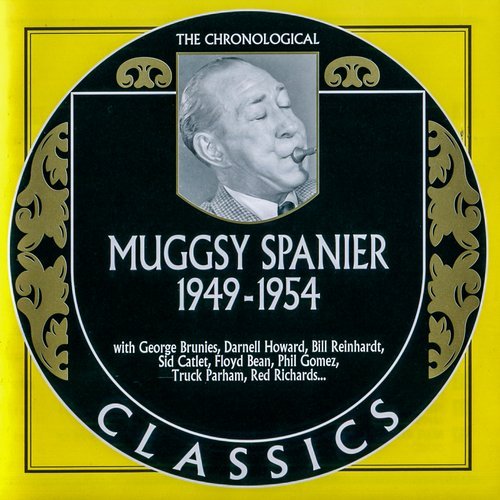

![Mark Nightingale, Alan Barnes & James Davison - Jazz Classics ...with a Twist (2026) [Hi-Res] Mark Nightingale, Alan Barnes & James Davison - Jazz Classics ...with a Twist (2026) [Hi-Res]](https://www.dibpic.com/uploads/posts/2026-02/1772036652_1.jpg)
![Nathalie Darche, Alban Darche, Geoffroy Tamisier, Chloé Cailleton - Dandy Dandie - Helios y Selene (2026) [Hi-Res] Nathalie Darche, Alban Darche, Geoffroy Tamisier, Chloé Cailleton - Dandy Dandie - Helios y Selene (2026) [Hi-Res]](https://www.dibpic.com/uploads/posts/2026-02/1772112437_snbggfr6gccwr_600.jpg)
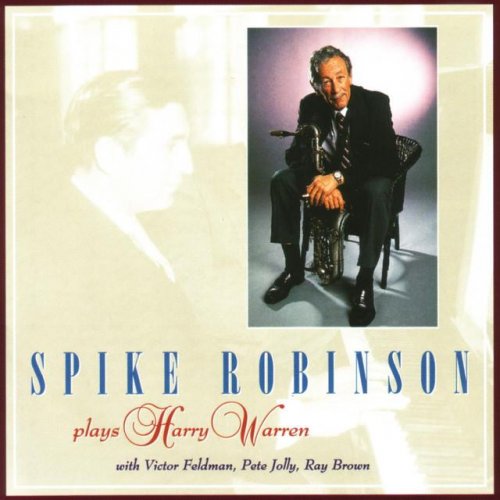
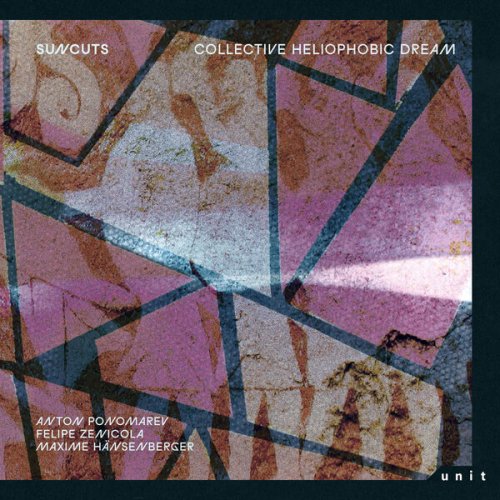
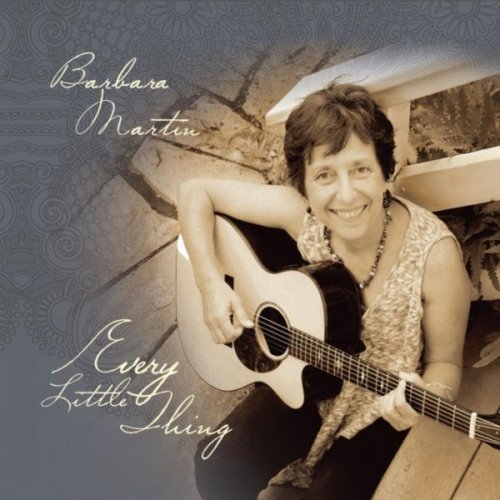
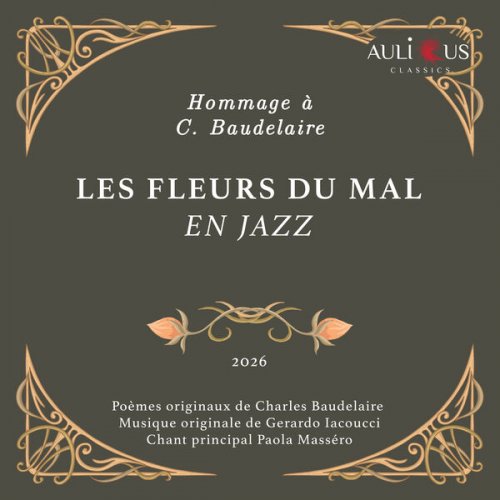
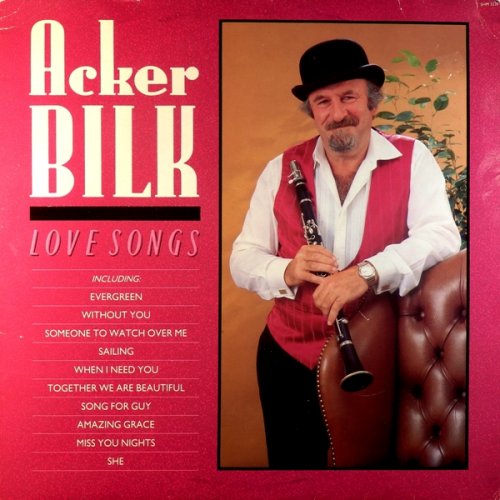
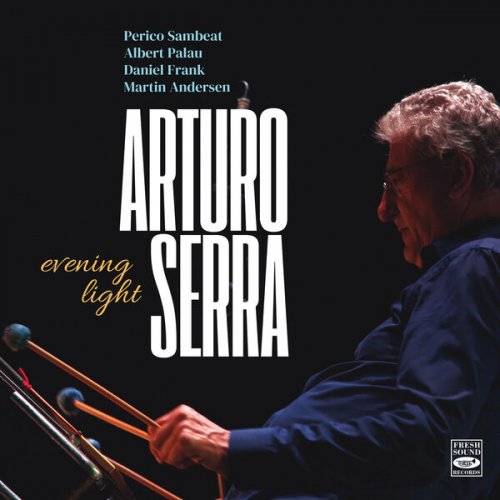
![Various Artists - Lost Tracks: Accra to Addis (2026) [Hi-Res] Various Artists - Lost Tracks: Accra to Addis (2026) [Hi-Res]](https://img.israbox.com/img/2026-02/26/lqvyrzr9f9yed5j0r3zv7c1r6.jpg)